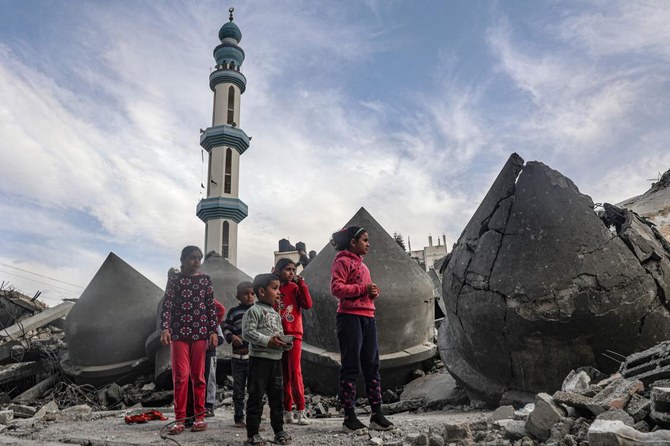
Four out of every five children need humanitarian assistance in Yemen
LONDON: At least 10,000 children have been killed or injured since 2015 in the Iran-backed Houthi militia’s war against Yemen’s legitimate government.
“That’s the equivalent of four children every day,” UNICEF spokesman James Elder said on Tuesday after a visit to Yemen by a team from the UN children’s agency.
The figure included only child victims whose fate was known to the agency and there were countless others, Elder said. The Houthis are known to have recruited thousands of children and forced them to fight, often sending them to the front lines when new battles begin and casualties are highest.
The UNICEF spokesman called for an end to the fighting, and pleaded for an injection of funds to keep the agency’s work going. “UNICEF urgently needs more than $235 million to continue its lifesaving work in Yemen until mid-2022,” Elder said.
“Otherwise the agency will be forced to scale down or stop its vital assistance for vulnerable children. Funding is critical. We can draw a clear line between donor support and lives saved. But even with increased support, the war must come to an end.
“At the current funding levels, and without an end to fighting, UNICEF cannot reach all these children. There is no other way to say this — without more international support, more children, those who bear no responsibility for this crisis, will die,” he warned.
“Yemen’s humanitarian crisis a tragic convergence of four threats: A violent and protracted conflict, economic devastation, shattered services for every support system — that is, health, nutrition, water and sanitation, protection and education — and a critically underfunded UN response.
“Four out of every five children need humanitarian assistance. That’s more than 11 million children.” Elder said 400,000 children suffered from malnutrition, more than two million children were out of school, and another 4 million were at risk of dropping out.
As the fighting continued on Tuesday, the Arab coalition in Yemen it had killed 48 Houthi fighters in airstrikes during intense fighting near the strategic battleground city of Marib.
The airstrikes took place in the Abedia district about 100 kilometers from Marib. The Houthis have laid siege to Abedia for the past month, cutting 35,000 civilians off from supplies of food, drinking water, medicines and other essentials.
The Houthis began a new offensive to capture the oil-rich Marib province in February, but have been repelled by government forces with coalition air support.
Ending the conflict is an American foreign policy priority, US Secretary of State Antony Blinken told newlyappointed UN Yemen envoy Hans Grundberg on Tuesday.
The two men “discussed efforts to engage all parties and secure a ceasefire, address urgent humanitarian priorities, restart the political process and ensure accountability for human rights violations and abuses,” the State Department said.












